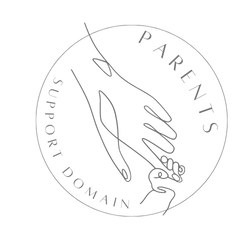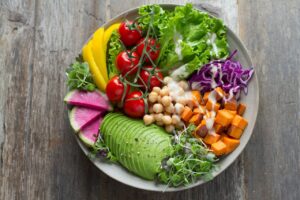Healthy Foods to Eat During Pregnancy
Healthy Foods to Eat During Pregnancy & Benefits
Navigating the world of nutrition during pregnancy can be a minefield. With so many do’s and don’ts, it’s hard to know exactly what your body needs for optimal health during this special time so give it a try.
In this article, we will be providing insights into essential foods that are beneficial to both expecting mothers and their growing babies. Keep reading – we’re about to make eating well during pregnancy deliciously simple.
Importance of a Balanced Diet During Pregnancy
Eating a balanced diet during pregnancy is crucial for both the mother and baby, as it provides the necessary nutrients and vitamins needed for healthy development.
Nutrients and vitamins needed during pregnancy
Pregnant women require additional nutrients to support their body and the growing fetus. Iron, calcium, iodine, and a diverse range of vitamins are among these vital elements. Consuming iron-rich foods such as lean red meat, chicken, seafood, dried beans, and lentils falls under daily guidelines for pregnant women.
Calcium is critical, too, and can be obtained from dairy products or calcium-fortified plant milk for those with lactose intolerance or vegans. Iodine helps in regulating the baby’s brain development, which can come from bread (except organic types) and iodized salt in Australia.
Eating a rainbow plate consisting of varied colored fruits and vegetables ensures an adequate supply of vitamins necessary for the well-being of both mother and baby during pregnancy.
A diet high in nutrients but low in added sugar, salt, and saturated fats contributes towards achieving an ideal pregnancy nutrition balance.
Consumption of protein sources like tofu along with meats assures consistent growth at all stages of fetal development. Shellfish containing omega-3 fatty acids enhance eyesight, while eggs have choline that supports brain health during infancy.
It goes without saying, though, that raw fish / shellfish / undercooked poultry/meat should not form part of any expected mothers’ diets due to potentially harmful bacteria they may transfer.
Soybeans have both folate (great for reducing risk factors associated with birth defects) and iron, whereas fortified foods provide plenty between meals if needed. However, do consider professional advice on your dietary habits throughout this period as it could make a huge difference towards delivering healthy, happy babies safely into our world someday soon enough!
Benefits for both mother and baby
A healthy and balanced diet during pregnancy comes with numerous benefits for both the mother and the baby. Firstly, it provides essential nutrients that support the overall growth and development of the baby.
These nutrients include vitamins, minerals, protein, and healthy fats. They play a crucial role in forming organs, building bones, strengthening the immune system, and supporting brain development.
Secondly, a nutritious diet helps to maintain a healthy weight gain during pregnancy while providing energy for both mom and baby. This can reduce the risk of complications such as gestational diabetes or high blood pressure.
Essential Healthy Foods to Include in Your Pregnancy Diet
Include dairy products for calcium, legumes for protein and fiber, sweet potatoes for vitamin A, salmon for omega-3 fatty acids, eggs for choline and protein, and broccoli and dark leafy greens for folate and iron.
Whole Grains
Eating whole grains is highly recommended during pregnancy. Whole grains provide important nutrients like fiber, B vitamins, iron, and magnesium. The fiber in whole grains can help relieve constipation, which is a common symptom during pregnancy.
The B vitamins help support the baby’s developing brain and nervous system. Iron carries oxygen to the baby and supports your expanding blood supply. Magnesium relaxes muscles and blood vessels.
Focus on whole grain breads, cereals, pasta, brown rice, oats, quinoa, barley, and bulgur. Look for the words “100% whole grain” or “100% whole wheat” on food labels.
Refined grains like white bread, white rice, and white pasta have had the nutritious bran and germ removed during processing. Aim to make at least half your grain servings whole grains.
Whole grains provide a steady supply of energy through their complex carbohydrates. They have a low glycemic index, meaning they do not cause sharp spikes in blood sugar. Avoiding blood sugar swings can help you manage pregnancy symptoms like fatigue, nausea, and mood changes. Heartier whole grains may also help alleviate heartburn, another common discomfort.
Including a variety of whole grains in your pregnancy diet will provide important nutrients for you and your baby. They are a smart substitution for refined grains to optimize your health. Consult with your doctor about how many grain servings to include daily based on your individual nutrition needs.
Greek Yogurt
Greek yogurt is a nutritious dairy option worth incorporating into your diet during pregnancy. Traditional Greek yogurt is strained to remove the liquid whey, resulting in a thicker, creamier product that provides more protein than regular yogurt. Just one serving provides 12-20 grams of protein.
The high protein content helps support the baby’s growth and development as well as the expansion of the maternal blood supply.
Greek yogurt also supplies calcium for developing bones and teeth. Look for varieties fortified with vitamin D to enhance calcium absorption. The probiotics in yogurt promote healthy gut bacteria, which boost immunity and facilitate digestion and nutrient absorption.
This can help relieve pregnancy-related constipation. Greek yogurt contains less sugar than other yogurts, making it a healthier choice for blood sugar control.
When buying Greek yogurt, opt for plain, unsweetened varieties without artificial sweeteners or fruit flavors. Sweeten it yourself with fresh fruit, a drizzle of honey, or cinnamon to satisfy cravings.
Try substituting Greek yogurt for sour cream on baked potatoes, incorporating it into smoothies, or using it as the base for dips and dressings. The thick, creamy texture also makes it a satisfying snack paired with granola, nuts, or peanut butter.
In moderation, Greek yogurt can be part of a well-balanced pregnancy diet. Aim for 2-3 servings per day. Consult your doctor about specific serving recommendations to meet your increased calcium and protein needs during this important time.
Dairy products for calcium
Dairy products like milk, yogurt, and cheese are excellent sources of calcium, which is vital for the development of your baby’s bones and teeth. Additionally, they also provide essential nutrients such as protein and vitamin D.
Consuming dairy products during pregnancy can help ensure that you meet your daily calcium needs, which increase during this time. Calcium-fortified plant milks are also a good alternative if you are lactose intolerant or prefer non-dairy options.
Including dairy in your pregnancy diet can contribute to healthy bone development for both you and your baby.
Legumes for protein and fiber
Including legumes in your pregnancy diet is a great way to get both protein and fiber. Legumes, such as beans, lentils, and chickpeas, are nutrient-dense and offer numerous benefits for expectant mothers.
They provide high-quality plant-based protein that is essential for the growth and development of your baby. In addition to protein, legumes are also rich in dietary fiber, which helps regulate digestion and prevent constipation—a common concern during pregnancy.
By incorporating legumes into your meals, you can ensure you’re getting the nutrients you need while promoting a healthy digestive system.
Sweet potatoes for vitamin A
Sweet potatoes are a great addition to a pregnancy diet because they are packed with vitamin A. Vitamin A is essential for healthy fetal development, especially for the growth of organs like the heart and lungs.
It also plays a role in maintaining healthy vision and promoting immune function for both mother and baby. Sweet potatoes can be enjoyed in various ways, such as roasted or mashed, making them a delicious and nutritious choice during pregnancy.
Adding sweet potatoes to your meals will help ensure you’re getting enough vitamin A to support the healthy growth and development of your baby.
Salmon for omega-3 fatty acids
Salmon is an excellent choice for pregnant women due to its high content of omega-3 fatty acids. These healthy fats are crucial for the development of your baby’s brain and eyes. Omega-3 fatty acids also have anti-inflammatory properties, which can help reduce the risk of certain pregnancy complications.
Including salmon in your diet can be a tasty way to ensure you’re getting these important nutrients.
Eggs for choline and protein
Eggs are a fantastic source of choline and protein for pregnant women. Choline is important for the development of the baby’s brain and helps to prevent birth defects. Protein is essential for the growth and repair of tissues in both the mother and baby.
Eggs also contain other nutrients like vitamins A, D, E, and B vitamins, making them a nutritious addition to a pregnancy diet. Including eggs in your meals can help ensure you’re getting the necessary nutrients for a healthy pregnancy.
Broccoli and dark, leafy greens for folate and iron
Broccoli and dark, leafy greens are excellent additions to a healthy pregnancy diet. These veggies are packed with important nutrients like folate and iron that are essential for you and your baby’s health.
Folate helps in the development of the baby’s neural tube, while iron supports the production of red blood cells. Including broccoli, spinach, kale, and collard greens in your meals can provide you with these vital nutrients.
So make sure to incorporate these vibrant vegetables into your pregnancy diet for a nutritious boost!
Foods to Avoid During Pregnancy
Avoid consuming raw or undercooked meats and fish, soft cheeses and unpasteurized dairy products, and certain seafood high in mercury, as well as caffeine and alcohol during pregnancy.
Raw or undercooked meats and fish
Consuming raw or undercooked meats and fish during pregnancy can pose serious health risks. These foods may contain harmful bacteria, such as salmonella or listeria, which can lead to food poisoning and potentially harm both the mother and the baby.
It is important to ensure that all meats are thoroughly cooked until they reach a safe internal temperature. Fish should also be cooked properly to kill any potential parasites or bacteria.
To reduce the risk of foodborne illnesses, it is advised to avoid eating sushi, raw oysters, or any other raw seafood while pregnant.
Soft cheeses and unpasteurized dairy products
Soft cheeses and unpasteurized dairy products should be avoided during pregnancy. These types of cheeses, such as brie, feta, camembert, blue cheese, and queso fresco, can contain harmful bacteria like Listeria.
Listeria infection can lead to serious complications for both the mother and the baby. To ensure food safety during pregnancy, it is best to choose hard cheeses or pasteurized dairy products instead.
Hard cheeses like cheddar or Swiss have a lower risk of containing harmful bacteria and are considered safe to consume.
Certain seafood high in mercury
Consuming seafood during pregnancy can provide important nutrients like omega-3 fatty acids. However, it is crucial to be aware of certain types of seafood that are high in mercury.
Mercury is a heavy metal that can harm the developing nervous system of the baby. Pregnant women should avoid fish such as sharks, swordfish, king mackerel, and tilefish, as they tend to have higher levels of mercury.
Instead, opt for low-mercury options like salmon, shrimp, canned light tuna (not albacore), and catfish. These choices still offer the benefits of seafood without posing a risk to your baby’s health.
Caffeine and alcohol
During pregnancy, it is important to limit or avoid the consumption of caffeine and alcohol. Caffeine can cross the placenta and affect the baby’s heart rate and growth. It is recommended to keep intake below 200 mg per day, which is roughly equivalent to one cup of coffee.
Alcohol should be completely avoided during pregnancy as it can cause serious birth defects and developmental issues in the baby. Even moderate amounts of alcohol have been linked to problems such as low birth weight, preterm birth, and cognitive impairments.
It is best to opt for healthier alternatives like herbal tea or fruit-infused water instead of caffeinated beverages and stick to non-alcoholic drinks throughout pregnancy.
Food Safety and Hygiene During Pregnancy
Properly handle and store food, avoid foodborne illnesses, and prioritize clean cooking surfaces and utensils.
Proper handling and storage of food
To ensure a safe and healthy pregnancy, proper handling and storage of food is essential. This includes washing fruits and vegetables thoroughly before consumption to remove any potential pesticide residue.
It is also important to store perishable foods properly, such as meat, poultry, fish, dairy products, and eggs, in the refrigerator to prevent the growth of harmful bacteria. Additionally, pregnant women should avoid cross-contamination by using separate cutting boards for raw meats and other foods.
By following these guidelines for food safety and hygiene during pregnancy, you can reduce the risk of foodborne illnesses and promote a healthy diet for both you and your baby.
Avoiding foodborne illnesses
Proper food safety and hygiene practices are crucial during pregnancy to avoid foodborne illnesses that can harm both the mother and the baby. Pregnant women should take extra precautions by avoiding certain foods and following guidelines to reduce the risk of infection.
It is important to handle and store food properly, ensuring that raw meats are cooked thoroughly and separate from other foods. Additionally, pregnant women should refrain from consuming raw or undercooked seafood, unpasteurized dairy products, soft cheeses, caffeine, and alcohol.
By prioritizing food safety measures, expectant mothers can protect themselves and their babies from potential harm.
Importance of clean cooking surfaces and utensils
Proper cleaning of cooking surfaces and utensils is crucial during pregnancy to prevent the spread of harmful bacteria and foodborne illnesses. Dirty surfaces can harbor pathogens that may cause infections, which can be especially risky for expectant mothers.
By ensuring clean cooking surfaces and utensils, you can reduce the risk of contamination, keeping yourself and your baby safe. Regularly wash cutting boards, knives, pots, pans, and other kitchen tools with hot, soapy water to remove any traces of bacteria or food residue.
Additionally, using separate cutting boards for raw meats and vegetables can further minimize cross-contamination. Remember that maintaining good hygiene practices in the kitchen plays a vital role in promoting a healthy diet during this important time.
Conclusion
In conclusion, a healthy diet during pregnancy is essential for the well-being of both mother and baby. By including nutrient-rich foods such as lean meats, dairy products, fruits, vegetables, and whole grains, pregnant women can ensure they are getting the necessary vitamins and minerals for a healthy pregnancy.
It’s important to prioritize a balanced diet and avoid harmful foods in order to support the growth and development of the baby.


